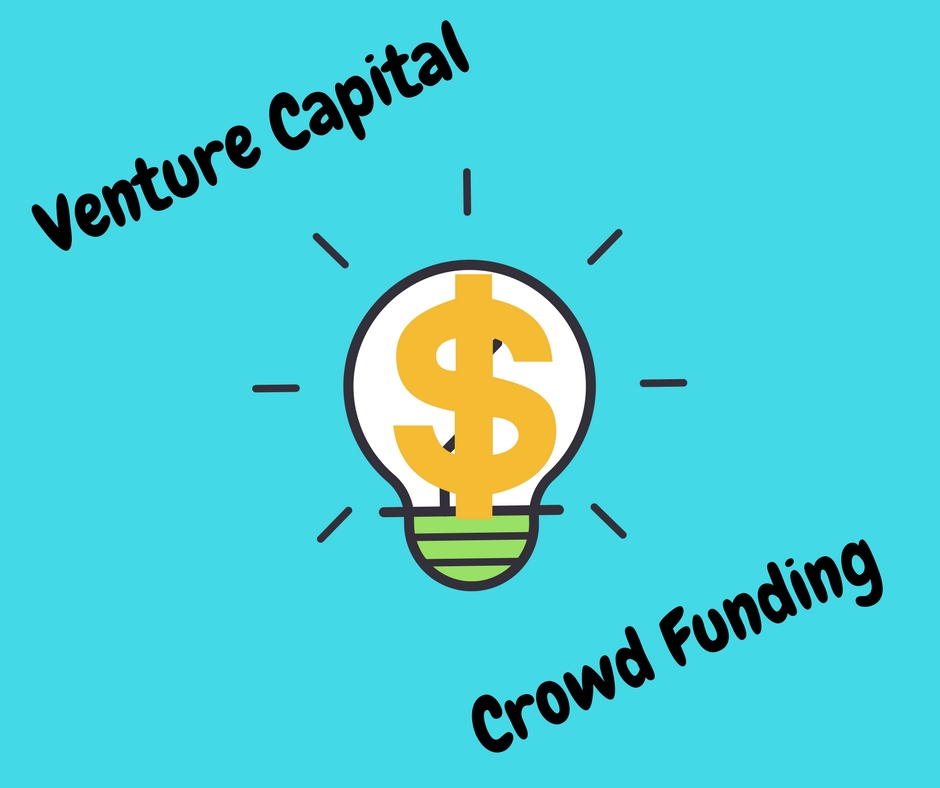
Image Source: Finance Blog – Mint2Save | Venture Capital vs Crowdfunding
When entrepreneurs look to expand their businesses, they have countless ways of raising capital.
And while having different choices is a good thing, it can lead to many business owners being unsure of how best to fund their expansion plans.
Two different avenues that are common methods used by entrepreneurs are equity crowdfunding and partnering with venture capital firms. Both have their advantages and shortcomings, meaning the best way to raise capital will depend on each business owner’s long-term goals and business model.
While crowdfunding empowers entrepreneurs to raise money by reaching out to retail investors, VC funding offers an official, more traditional route with the promise of hefty financial injections and strategic partnerships.
Today, we will aim to unravel the complexities of crowdfunding’s broad appeal against the exclusivity of venture capital, offering a bird’s eye view of the benefits, pitfalls, and the strategic fit of each for expanding an entrepreneur’s business.
Equity Crowdfunding vs Venture Capital: Defining the Fundamentals
Before diving into the intricacies of crowdfunding and venture capital, it’s essential to understand their foundational elements.
At the core, both are means of raising capital, but they operate in markedly different ways. This section will explain these two financing routes, laying out the groundwork for a deeper comparison.
Crowdfunding Basics:

Image Source: Crowdfunding Basics: A Primer | GeekDad
In short, crowdfunding is a relatively new and effective method of raising capital by asking a large number of people for a small amount of money. Traditionally, financing a business or venture involved asking an institution for large sums of money.
Crowdfunding switches this idea around, using digital platforms to talk to countless potential funders (who are called equity crowdfunding investors).
There are four main types of crowdfunding:
- Reward-based crowdfunding: Backers receive a product or service in return for their funds.
- Debt-based crowdfunding (or peer-to-peer lending): Much like a business loan, backers receive their money back with interest.
- Equity crowdfunding: Investors receive shares of the company.
- Donation-based crowdfunding: Backers contribute to a cause with no expectation of a return.
Most recently, equity crowdfunding platforms have popularized this financing method, enabling anyone, from the just-starting-out investor to the wealthy businessman, to invest their funds directly into promising startups.
Venture Capital Explained:

Image Source: Protecting your interests when taking venture capital | WBW.co
Venture capital is a type of private equity provided to startups and small businesses with high growth potential.
This capital comes from wealthy investors, investment banks, and other financial institutions that see potential for significant returns on their investments.
Unlike crowdfunding, venture capital is not a one-time campaign but a long-term investment partnership. Startups seeking venture capital will need to go through rigorous due diligence, presenting detailed business plans, market analysis, and growth projections.
Venture capital typically involves the following stages:
- Seed stage: Early funding to support the business until it can generate cash of its own.
- Series A: Investments made to optimize products and market fit.
- Series B: Funding to scale the company, increasing market reach.
- Series C and beyond: Large-scale funding rounds to help the company expand, possibly even gearing up for an IPO.
This type of funding is particularly attractive because it usually offers more than just money. A venture capital firm can bring with them a wealth of knowledge, resources, and business acumen to the table, often helping a small business navigate the tricky waters of rapid growth and scale.
Case Studies and Success Stories
When looking at the differences between equity crowdfunding and VC funding, a logical question to ask is, which one is better?
And while the answer to that question will differ for each investor or business owner, we wanted to show our readers that regardless of which route you take, both allow for incredible levels of success.
Crowdfunding Successes:
Pebble Technology: Pebble raised over $10 million in 2012 for their first smartwatch through Kickstarter, marking one of the most successful crowdfunding campaigns of its time. They returned to Kickstarter for their second product, Pebble Time, and raised $20 million from nearly 79,000 backers.
Exploding Kittens: This card game became a sensation on Kickstarter, raising nearly $9 million against an initial goal of just $10,000. It demonstrated how a creative idea, combined with a well-executed crowdfunding campaign, could achieve massive support, turning a simple concept into one of the most-backed projects in Kickstarter history.
Venture Capital Triumphs:
Google: In 1998, Google received a $100,000 check from Andy Bechtolsheim, co-founder of Sun Microsystems, marking the beginning of its venture capital journey. Later, Sequoia Capital and Kleiner Perkins invested $25 million in the promising search engine firm.
Facebook: Initially starting with seed funding from PayPal co-founder Peter Thiel, Facebook later received a significant amount of venture capital funding from Accel Partners in 2005, which helped to transform the social network from a college platform into a global phenomenon.
Comparison of Models
At some point, all entrepreneurs will have to weigh the options of crowdfunding against venture capital.
Each method presents a distinct approach to raising funds, with its own advantages and limitations.
In this section, we’ll do a direct comparison between these two popular models of investment, focusing on their accessibility to startups, the scale of funding they offer, and the typical timeline for receiving funds.
Access to Funds:

Image Source: Lack of Access to Capital Threatens Sustainable SMB Growth | Small Biz Daily
Crowdfunding: Platforms like Kickstarter, Indiegogo, and GoFundMe democratize the fundraising process. They are accessible to anyone with a compelling story or innovative idea. The key to success in crowdfunding is the ability to market your idea effectively to a large audience. Social media savviness, compelling storytelling, and a transparent value proposition are critical components.
Venture Capital: Securing VC investments is often a more challenging endeavor. It requires not just a scalable business model but also the ability to network within investor circles. Entrepreneurs need to have a solid business plan, a strong team, and often a proof of concept that demonstrates significant growth potential. The vetting process is rigorous, and only a small percentage of startups are successful in securing venture capital.
Amounts Raised:
Crowdfunding: The funds raised through crowdfunding can vary widely but often fall into the tens to hundreds of thousands of dollars. Some projects exceed these amounts, but they are exceptions rather than the norm. Crowdfunding is often used to validate a concept, produce a run of an initial product, or support a specific project.
Venture Capital: Venture capital investment can be substantial, running into the millions or even billions for later-stage investments. This level of funding is aimed at rapid scaling, market expansion, and significant R&D. It’s designed to catapult a business into a dominant market position quickly.
Speed of Funding:
Crowdfunding: Campaigns can be set up relatively quickly, and funds can start flowing in almost immediately if the campaign resonates with the audience. The entire process, from campaign setup to fund receipt, can often be completed in a matter of months.
Venture Capital: Securing venture capital is a more prolonged process, typically taking anywhere from a few months to over a year. It involves pitching to investors, undergoing due diligence, and negotiating terms. The speed is also influenced by market conditions, the startup’s readiness, and investor interest.
Investor Engagement and Expectations:

Image Source: Why should investors look at shareholder engagement to influence actions on ESG? | The Globe and Mail
Crowdfunding: Backers in crowdfunding campaigns are often motivated by a desire to support an idea they believe in (along with a financial return). Usually, there is not as large of an expectation of financial return when compared to venture capital. This can allow for more creative freedom and less pressure on immediate profitability.
Venture Capital: Venture capitalists are focused on return on investment and often play an active role in the company’s strategic direction. They expect significant influence over company decisions and a clear exit strategy, usually through an acquisition or an initial public offering (IPO).
Reporting and Transparency:
Crowdfunding: Campaigns require a high level of transparency to build trust with potential backers. This means regular updates and open communication about the project’s progress, challenges, and successes. However, there is usually not a scheduled cadence or strict expectation as to how or when a company updates investors.
Venture Capital: Startups with venture capital backing enter into a formal relationship that includes structured reporting and governance. They are accountable to their investors, who will expect regular, detailed updates on financial performance and strategic decisions.
Pros and Cons Analysis
Now that we have a better understanding of the differences between these funding options let’s take a closer look at the specific pros and cons of each.
Pros and Cons of Crowdfunding:
Equity Crowdfunding Pros:
- Market Validation: Crowdfunding allows entrepreneurs to gauge consumer interest before the product reaches the market. A successful campaign is a strong indicator of potential success and can be used to validate the concept with minimal risk.
- Brand Advocacy: Backers who support a crowdfunding campaign often become enthusiastic promoters for the brand. This grassroots support can be invaluable in building a community around a product or service.
- Creative Control: Entrepreneurs retain near full control over their business, as crowdfunding does not require taking on new business partners or taking on debt (unless it is debt-based crowdfunding).
Equity Crowdfunding Cons:
- All-or-Nothing Funding: Many crowdfunding platforms operate on an all-or-nothing model, where funds are only received if the campaign reaches its predefined goals. Failure to meet these goals can result in no funding at all.
- Intense Preparation and Management: Running a successful crowdfunding campaign requires significant effort in preparation, marketing, and communication, which can be a full-time job in itself.
- Risk of Copycats: Publicly sharing your idea can invite imitation, especially if the product has not been patented or if the intellectual property is not fully protected.
Pros and Cons of Venture Capital:
Venture Capital Pros:
- Large Amounts of Capital: Venture capital can provide substantial funding that is often necessary for rapid scaling, which is usually not achievable through crowdfunding.
- Mentorship and Expertise: Venture capitalists often bring industry expertise, valuable advice, and mentorship, which can be crucial for strategic growth.
- Networking Opportunities: VC firms offer access to a vast network of industry partners, potential customers, and other investors.
Venture Capital Cons:
- Loss of Equity and Control: Entrepreneurs typically have to give up a sizeable portion of their company, which can lead to loss of control over business decisions.
- Pressure for Quick Returns: VCs are looking for a return on their investment, often within a certain timeframe, which can pressure companies to prioritize short-term gains over long-term sustainability.
- Rigorous Selection Process: Obtaining venture capital is highly competitive, with a rigorous vetting process that can be incredibly resource-intensive.
Understanding these pros and cons is crucial for startups as they weigh their options. Crowdfunding might be the best route for businesses with a strong consumer focus and a compelling narrative, while venture capital might be better suited for high-growth-potential companies that are ready to scale quickly and need more than just money to succeed.
Wrap up
The industry of startup funding is as dynamic as the businesses it aims to propel. While this article has covered the fundamental aspects of equity crowdfunding vs venture capital, the ultimate choice will rest in the hands of the entrepreneur.
Business owners will have to remember that deciding between these two funding options is not merely a financial decision but a strategic one that must align with their company’s vision, growth stage, and long-term objectives.
More specifically, equity crowdfunding may open doors for early-stage startups not ready or suitable for venture capital’s stringent requirements. Meanwhile, venture capital can catapult a proven concept into a market leader, albeit with trade-offs in equity and control.
One final piece of advice: focus less on which method is “best,” and instead focus on where you want your company to go – and decide which option will support you in getting there.
Good luck!
Disclosure/Disclaimer:
We are not brokers, investment, or financial advisers; you should not rely on the information herein as investment advice. If you are seeking personalized investment advice, please contact a qualified and registered broker, investment adviser, or financial adviser. You should not make any investment decisions based on our communications. Our stock profiles are intended to highlight certain companies for YOUR further investigation; they are NOT recommendations. The securities issued by the companies we profile should be considered high risk and, if you do invest, you may lose your entire investment. Please do your own research before investing, including reading the companies’ public filings, press releases, and risk disclosures. The company provided information in this profile, extracted from public filings, company websites, and other publicly available sources. We believe the sources and information are accurate and reliable but we cannot guarantee it. The commentary and opinions in this article are our own, so please do your own research.
Copyright © 2023 Edge Investments, All rights reserved.
